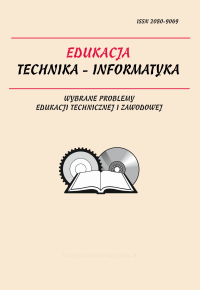Cross-Cutting Practical Trainings for Students in the Field of Ecology and Environmental Sciences
Keywords:
practical training, specialists in ecology and environmental sciences, cross-cutting programAbstract
The paper addresses the key structural elements of the cross-cutting practical training (or program), namely: methodological (e.g. methods, techniques), regulatory (e.g. laws, decrees, regulations of the Cabinet of Ministers of Ukraine), technical (e.g. standardization system), human resource and financial support of practical training; structural-and-logical profiles of practical trainings for students in the field of ecology and environmental protection in order to meet the needs of the labour market; working practice programs. There are defined the professionally important qualities and skills that are acquired in the course of practical trainings, including academic, intellectual, communicative, moral, practical, self-reliance, initiative, commitment, predictability, decisiveness, which in turn encourage the specialists to carry out professional research, develop designs, conduct expert control, perform tasks such as legal and regulatory, environmental, educational, administrative that are related to sustainable use of natural resource, modelling and predicting the state of the environment etc.Downloads
Published
2014-06-30
How to Cite
RIDEI, N., & STROKAL, V. (2014). Cross-Cutting Practical Trainings for Students in the Field
of Ecology and Environmental Sciences. Journal of Education, Technology and Computer Science, 9(1), 379–384. Retrieved from https://journals.ur.edu.pl/jetacomps/article/view/6684
Issue
Section
ENVIRONMENTAL AND ECOLOGICAL EDUCATION
License
Copyright (c) 2014 Journal of Education, Technology and Computer Science

This work is licensed under a Creative Commons Attribution-ShareAlike 4.0 International License.

